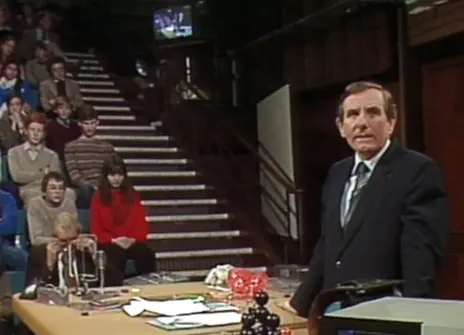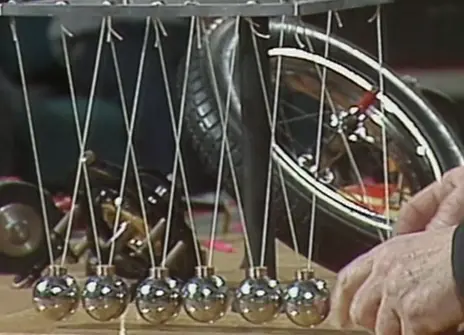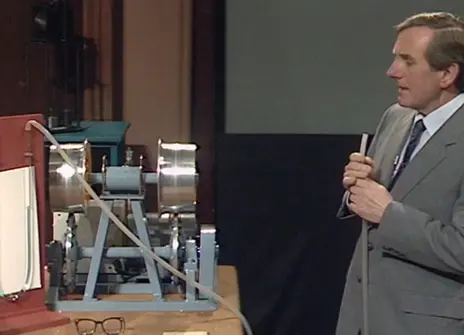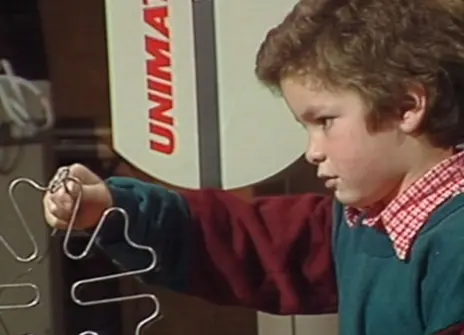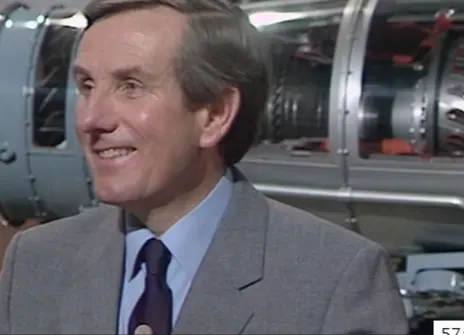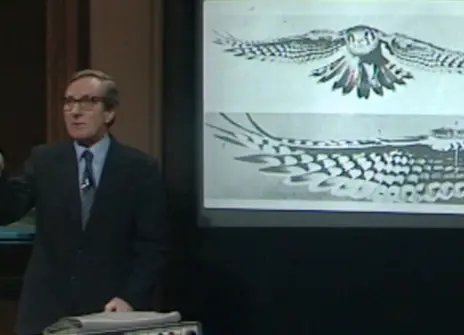Lecture 4 – Under control
From the 1983 lecture programme:
It is remarkable that so many of the diverse phenomena we observe in the natural and man-made worlds operate on similar principles of control. Their central feature depends on a capacity to measure an output and, if it does not meet the specification, to change an input accordingly. The ways in which this 'closed-loop' operation is carried out vary enormously, but the patterns of behaviour show certain common characteristics, which we shall explore. At one end of the scale, we shall look at the classical problem of controlling the speed of a single rotating machine and, at the other, the control of the electricity supply to the United Kingdom. We shall also investigate the growing activities of robots, including the new generation that can see, feel and make decisions.
About the 1983 CHRISTMAS LECTURES
From the 1983 lecture programme:
The world is full of movement it may be fast or slow, short-lived or long, simple or complicated. In the realms of nature, living creatures have developed astonishingly varied means of locomotion to propel themselves on land, in the sea and in the air. And in engineering, we have learned how to make machines, usually involving motion of one kind or another, for many useful purposes. All depend on the same physical basis of motion. Many famous men have contributed to our understanding of the subject, whether the motion is on the large scale as in the heavens, or on the small scale as in the atom; many others have developed machines that can move faster, further or more accurately; some have done both. In these lectures, we shall be looking at the ways in which our knowledge of the subject continues to grow. We shall also explore how it is being used to extend the extraordinary variety of machines created for our use and convenience. In the future as in the past, it will be the task of the engineer to discover new ways of doing things and to invent, design and make the new machines. All our experience suggests there are exciting prospects ahead that as yet we can hardly imagine.

